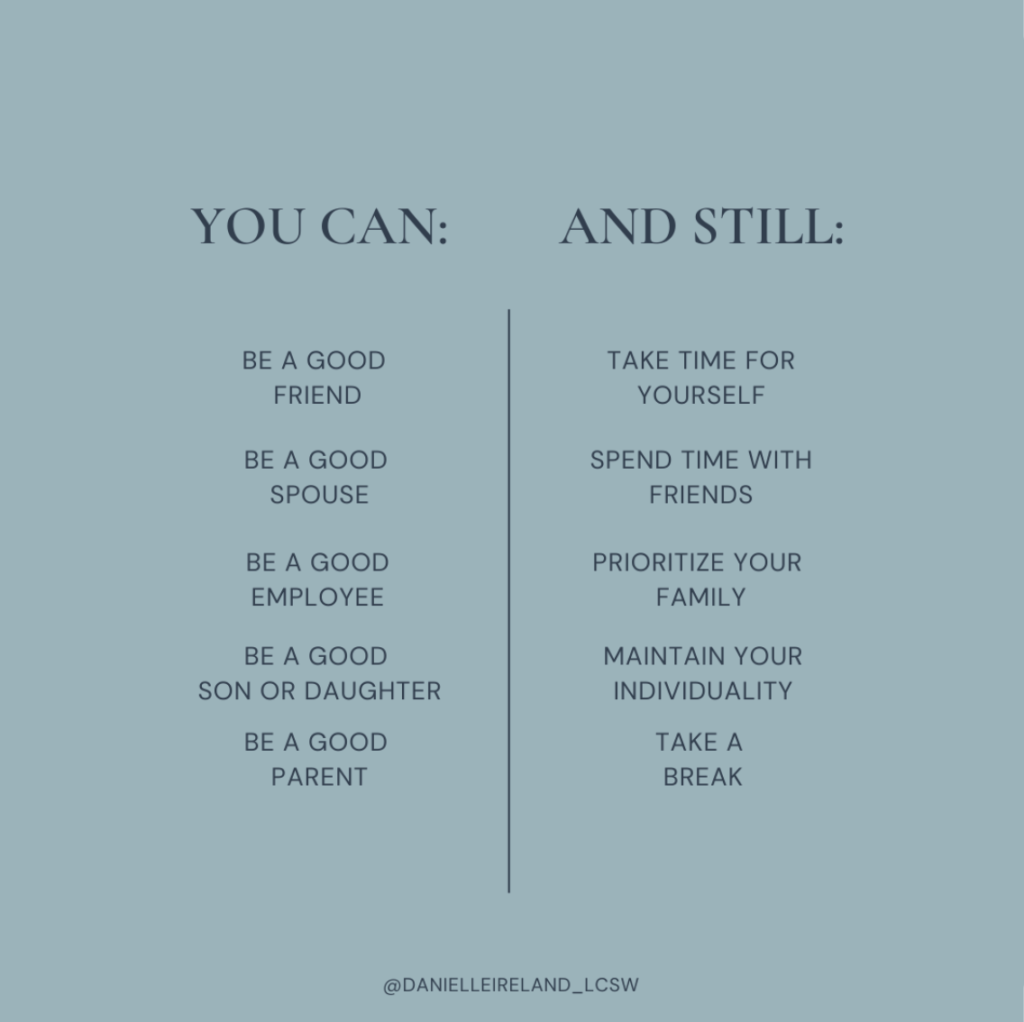Peace of mind is all about perspective.
When we acknowledge that there isn’t just one solution to our problem, one answer to a question, or one possibility for a path forward we give ourselves permission to find peace. Here’s what I mean: When it comes to solving our issues, most of us identify either/or options.
We can either do one thing or the other. Outside of that, no other solution exists.
But, when we learn to embrace the gray area, we open our minds up to unlimited opportunities for peace. And, we honor ourselves and our integrity in process.
Here’s an example I like to use with my clients:
You’re a hard worker. You push yourself. And, you’re known for getting the job done. And, because you have that mentality, you often forget to allow yourself breaks.
In this example, you’d “theoretically” have two options:
- Continue pushing yourself (and likely fall into burn out)
- Or, take a break, all the while thinking about the things you could be getting done
Another way of exploring the “gray areas” is to ask yourself, “What else could me true?”
For example
“It seems like if I take a brake I’m going to fall behind. But, I’m exhausted and need to (eat, sleep, connect with loved ones, etc).”
Both are true, AND what else could be true?
“It’s also true that thinking about this project is making me feel anxious and resentful. I think about it when I’m trying to sleep and first thing in the morning. It’s also true that once I finish this project, there’s another one after it and another after that.”
What conclusions could you draw based on this additional information?
“I’m busy. I’m tired. If I keep going at this pace, I’m likely going to feel burnt-out. If I don’t find a way to cut myself some slack now, I’m probably going to have a harder time next month when I start a new project.”
What action could you take, acknowledging all of these elements?

“Taking a break when I need it, even if it’s 15 minutes will feel a lot better. Eating a meal without my computer next to me or responding to emails on my phone won’t mean my world will fall apart. When I enjoy what I do, I do better work, and doing my best work matters more to me than feeling busy.”
It’s all about perspective
It’s all about perspective. SO, think of this your reminder to seek out those gray areas and honor yourself in the process. And, if you need another point of reference, here’s a table with some additional examples.
New on the podcast

Ep. 89 Happiness comes from achievement, right?
Today, I want to talk about taking a step back and listening to your emotions, but what does it mean exactly?
Examples would look like:
• Feeling irritable or overly tired
• Having some form of difficulty in your everyday routine
• Unclear on why you’re feeling upset
In this episode we’re going to explore the difference between setting goals, and spiraling out. What it means to change your mind, and why it’s so important to take a break.
You can find episode 89 on iTunes & Spotify.
Looking for some additional resources or support?
- Pick up a copy of the Treasured Journal & Guided Meditation Series.
- Join the Treasured Tribe – an online support group for women.
